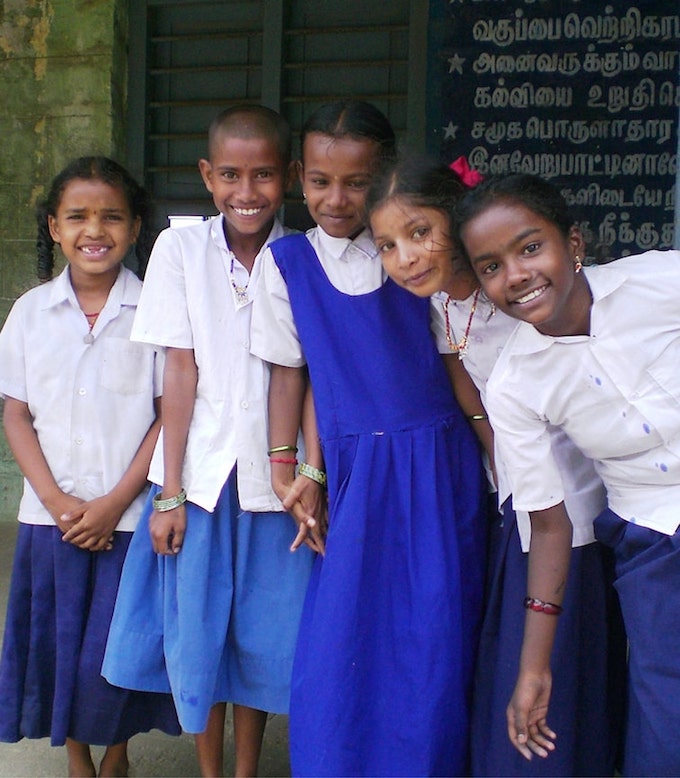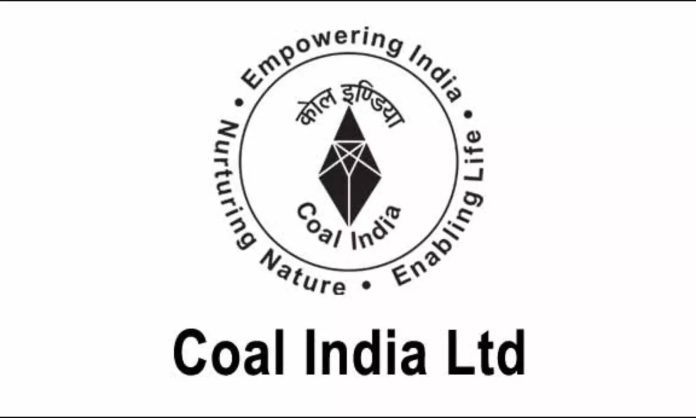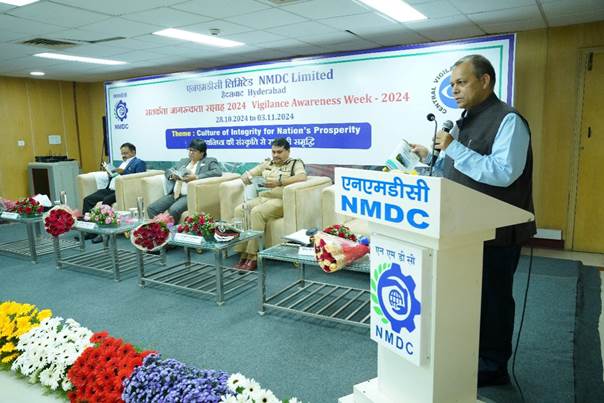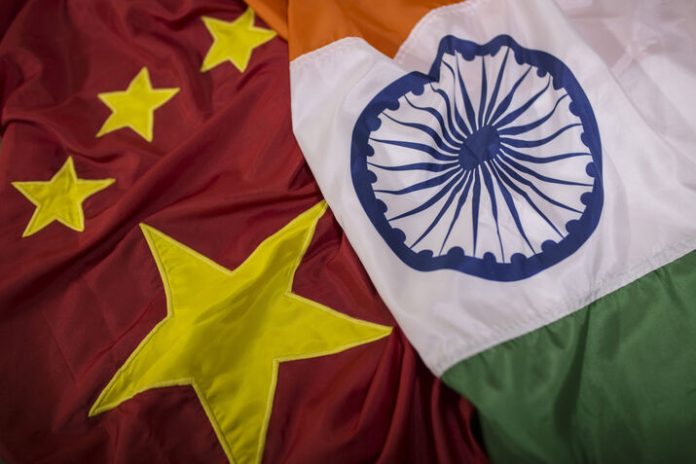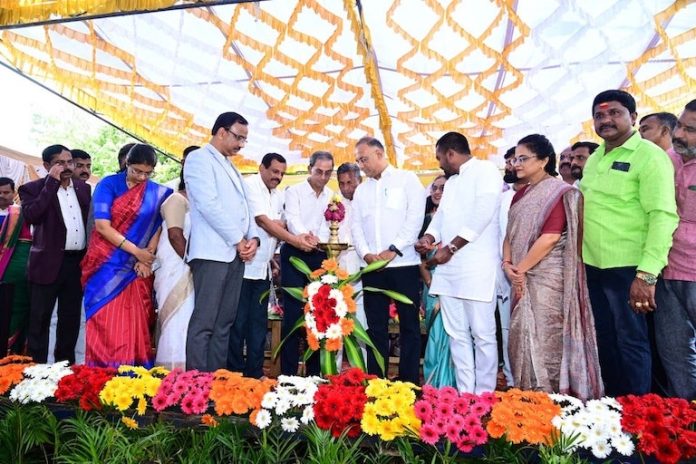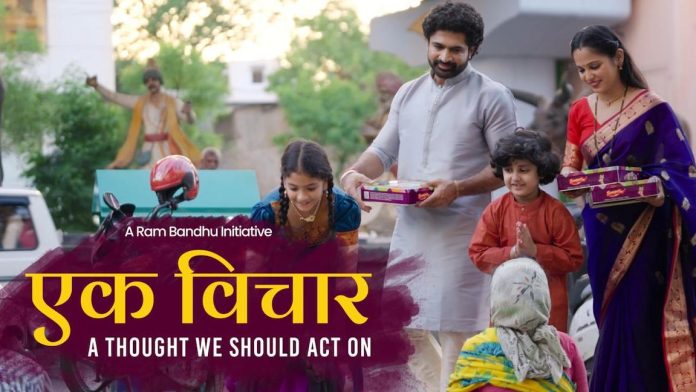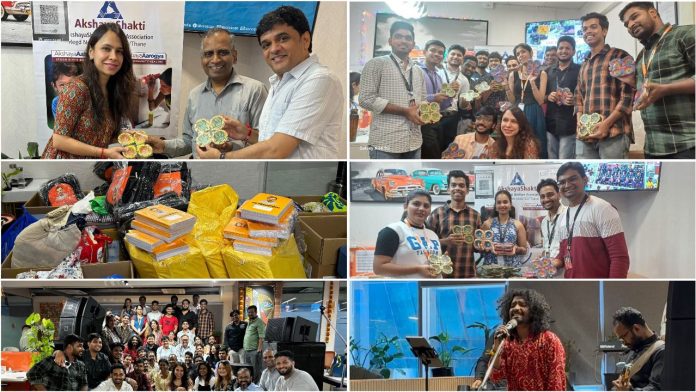Celebrating 50 years of Coal India Limited
New Delhi, India: Continuing to meet India’s coal requirement and bolstering the energy sector, the state owned Coal India Limited (CIL) stepped into its 50th year of inception on 1st November 2024. CIL came into being on 1st November 1975 as an apex holding company of the nationalized coking coal (1971) and non-coking mines (1973).
From 89 Million Tonne (MT) production during 1975-76, the year CIL was formed, the Maharatna coal behemoth under the Ministry of Coal ended FY 2024 with 773.6 MT output – an 8.7 fold growth. With 80% of its entire supplies directed to coal based power plants at highly competitive rates CIL plays a key role in enabling the citizens getting power at a just price.
Though CIL’s employee strength fell sharply by almost a third to 2.25 Lakhs now from 6.75 Lakh employees during the early years of Nationalization, the production has taken an upward leap.
Congratulating Coal India, Union Minister of Coal and Mines, Shri G Kishan Reddy said, “As Coal India enters into its Golden Jubilee Year with many milestones under its belt, I convey my best wishes to the company. Coal is yet to peak to its full potential in India. Indigenous production is vital to avoid expensive imports. Coal India has to ramp up production to higher levels in future with equal importance to people oriented social responsibility, welfare and safety”.
It had been an eventful near five decade journey for CIL. The company braved many changes and challenges, trials and tribulations but managed to deliver what was expected of it. From a pure play coal producing company, Coal India is now diversifying into solar power, pithead power stations, coal gasification and critical minerals in the National interest.
Beginning 2007, CIL had been formally observing its Foundation Day celebration as an in-house event. This includes J B Kumaramangalam Memorial lecture by either a former Chairman or an Industry expert and bestowing awards on best performers. This year as well the company will be celebrating the event on 3rd November in Kolkata with the Coal Minister as the Chief Guest and Coal Secretary as Guest of Honour.
Disclaimer: This media release is auto-generated. The CSR Journal is not responsible for the content.
NMDC Celebrates Vigilance Awareness Week 2024
NMDC, India’s largest iron ore producer, concluded Vigilance Awareness Week 2024 with a valedictory function that underscored the importance of integrity and ethical practices. A three-month-long awareness campaign, which started on August 16 2024 and runs until November 15, by conducting various events at project sites and headquarters. The Vigilance Awareness Week commenced on 28th October 2024, concluded at headquarters with a keynote session by Shri Mahesh M. Bhagwat, IPS, Addl. DGP (L&O) Hyderabad, on ‘Culture of Integrity for Nation’s prosperity’ followed by unveiling of the in-house vigilance magazine “Subodh” and prize distribution for the children, employees & stakeholders who have taken part in various activities.
The valedictory event was attended by senior leadership of NMDC, including Amitava Mukherjee, CMD (Addl. Charge), Shri Vinay Kumar, Director (Technical) and (Personnel, Addl. Charge), NMDC, and Shri B. Vishwanath, Chief Vigilance Officer, along with NMDC employees.
Chief guest Shri Mahesh M. Bhagwat, IPS, Addl. DGP (L&O) Hyderabad, spoke on the significance of integrity, transparency, commitment, and dedication. He shared insights on how integrity is bedrock to operations, citing theory of Sigmund Freud on the developmental stages that shape adult behavior. He encouraged employees to develop the habit of being vigilant apart from their duty; to share responsibility of creating a fair and trustworthy workplace.
Addressing the gathering, Amitava Mukherjee, CMD (Addl. Charge) commended the vigilance team for their efforts throughout the year. “The vigilance organization is more than a fault-finding body. NMDC has made remarkable strides in capacity building as we aim for our 100 MnT goal. This is a quantum leap forward, requiring us to make systematic, informed decisions. Correct digital interventions enhance transparency and efficiency. Preventive Vigilance leads to refinement and codification of processes which limits reliance on individual discretion in decision making” he remarked. He urged participants to actively engage in preventive vigilance activities, strengthen systems for transparency, and adhere to standardized procurement practices in line with government guidelines.
Shri B. Vishwanath, Chief Vigilance Officer, emphasized the role of the CVC’s guidelines in achieving fair, ethical, and sustainable processes within the organization. He highlighted the success of capacity-building initiatives, stating, “Vigilance awareness programs were conducted in more than 28 schools and colleges across Hyderabad, Bailadila, Jagdalpur, Nagarnar, Panna, and Donimalai, reaching over 1,800 students. In Hyderabad, we included 1,000 students in various skits and activities.”
The fourth edition of the in-house vigilance magazine, “Subodh,” was launched during the event, serving as a valuable resource for employees and stakeholders.
Throughout Vigilance Awareness Week, various events were organized at different projects, including quiz competitions, slogan writing, elocution, essay writing, and best housekeeping initiatives. Winners of these competitions were recognized during the valedictory session, celebrating their contributions to promoting ethical practices within the organization.
One day prior to the above program, NMDC had organised a ‘Run for Unity’ on October 31, 2024, in honor of Sardar Vallabhbhai Patel’s birth anniversary during this week. The event was flagged off by Chief Vigilance Officer Shri B. Vishwanath and CGM Smt. Priyadarshini. NMDC employees, along with students from various schools, participated enthusiastically, paying tribute to the Iron Man of India and reinforcing the spirit of unity and integrity that the week embodies.
Disclaimer: This media release is auto-generated. The CSR Journal is not responsible for the content.
Centre launches Digital India Common Service Center project in Pilibhit and Gorakhpur to bridge digital divide
Gorakhpur, India: In a significant move to bridge the digital divide in rural India and ensure that digital services reach every citizen, the Ministry of Electronics and Information Technology (MeitY) is launching the Digital India Common Service Center (DICSC) project, starting with Pilibhit and Gorakhpur. This initiative will establish one model DICSC center in nearly all gram panchayats across 10 districts, totaling 4,740 centers nationwide.
DICSC across India
Specifically, Pilibhit will see the establishment of 720 DICSC centers, while Gorakhpur (Uttar Pradesh) will have 1,273 centers. Additional locations include Chhatrapati Sambhajinagar (old Aurangabad, Maharashtra) with 870 centers, Chamba (Himachal Pradesh) with 309, Khammam (Telangana) with 589, Gandhinagar (Gujarat) with 288, Mamit (Mizoram) with 100, Jodhpur (Rajasthan) with 415, Leh (Ladakh) with 95, and Puducherry state with 81 DICSC centers. The implementation and centralized technical monitoring of these centers will be managed by CSC e-Governance Services India Limited.
With a budget of ₹Thirty one crore Sixty lakh Eighty eight thousand (31.6088 crore), the project is set to run initially for six months, with the possibility of extending it to nine months. The primary goal is to create an integrated platform that provides essential e-governance services along with financial and commercial services to rural citizens. The CSC centers in Pilibhit will offer a variety of services including Aadhaar registration, banking, financial planning, tele-law, telemedicine, education, and e-commerce support.
High speed internet to drive growth
Each CSC will be equipped with high-speed broadband connectivity and modern infrastructure to function as a multi-functional service center. This project aims to empower Village Level Entrepreneurs (VLEs), fostering local economic growth and creating job opportunities. The initiative will also ensure transparent and sustainable service delivery through centralized technical monitoring.
Additionally, GPS-enabled mobile vans will be deployed to promote government schemes and deliver essential services directly to remote areas. This comprehensive approach is expected to significantly enhance digital literacy and improve access to services in both Pilibhit and Gorakhpur.
The DICSC project is set to transform these regions by providing critical digital services that empower local entrepreneurs and promote inclusive growth. By addressing the digital divide and enhancing access to essential services, this initiative aims to uplift the economic conditions of Pilibhit and Gorakhpur, integrating them into the broader digital economy.
Disclaimer: This media release is auto-generated. The CSR Journal is not responsible for the content.
अडानी फाउंडेशन ने सेल्फ हेल्प ग्रुप्स से गुडूर की ग्रामीण महिलाओं को बनाया सशक्त
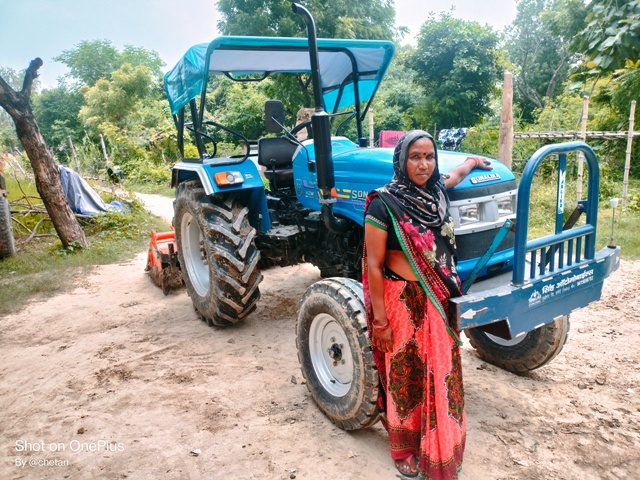
सीमेंट और निर्माण सामग्री में अग्रणी कंपनी एसीसी के सीएसआर पहल से महिलाएं सशक्त बन रही है। अडानी फाउंडेशन के साथ मिलकर एसीसी टिकरिया उत्तर प्रदेश में ग्रामीण उद्यमिता यानी Rural Entrepreneurship को बढ़ावा दे रही है। इस पहल के तहत ACC Cements और अडानी फाउंडेशन (Adani Foundation) ने टिकरिया में 12 सेल्फ हेल्प ग्रुप्स (SHGs) का गठन किया है जो कि ग्रामीण क्षेत्र के सामाजिक-आर्थिक स्थिति को बदलने का प्रयास कर रहे हैं। गुडूर ग्राम पंचायत की आबादी लगभग 2,000 की है। पहले ये पंचायत सामाजिक-आर्थिक समस्याओं से जूझ रही थी।
एसीसी और अडानी फाउंडेशन ने स्थापित किया सेल्फ हेल्प ग्रुप्स, ग्रामीण महिलाओं की कमाई में बढ़ोतरी
यहां के अधिकांश लोग कृषि और मजदूरी पर निर्भर थे और अक्सर गरीबी रेखा से नीचे जीवनयापन कर रहे थे। गांव में आवश्यक सेवाएं जैसे कि अस्पताल, बैंक और बाजार 13 किलोमीटर की दूरी पर स्थित हैं, जो कि गांव के लोगों के लिए पहुंच से बाहर थी। इस स्थिति को देखते हुए, एसीसी ने अडानी फाउंडेशन के सहयोग से 12 सेल्फ हेल्प ग्रुप्स की स्थापना की। इन समूहों के माध्यम से स्माल फाइनेंस और व्यवसाय प्रशिक्षण प्रदान किया गया, जिससे कई परिवारों का जीवन स्तर सुधर रहा है और उन्हें अपनी आजीविका को बेहतर बनाने में मदद मिल रही है।
अदाणी फाउंडेशन की पहल से गांव की सामाजिक-आर्थिक विकास हुई
गांव की 54 वर्षीय महिला सुंद्रा के जीवन में इस पहल ने बड़ा परिवर्तन लाया है। उन्होंने अपने SHG के माध्यम से 1.50 लाख का लोन लिया और इसका उपयोग कृषि उपकरणों में निवेश करने के लिए किया। यह कदम राष्ट्रीय ग्रामीण आजीविका मिशन (NRLM) के तहत किया गया, और आज वह हर महीने 15,000 की कमाई कर रही हैं। इस कमाई से उनके परिवार की जीवनशैली में सकारात्मक बदलाव आया है और उनकी आर्थिक स्थिति में भी बदलाव आया है। एसीसी और अदाणी फाउंडेशन की इस पहल से सुंद्रा जैसे ग्रामीणों की सशक्तिकरण की कहानियां सामने आई हैं। यह पहल गांव में आर्थिक विकास को बढ़ावा दे रही है। जहां ग्रामीणों ने चुनौतियों को अवसरों में बदल दिया है। इन प्रयासों से न केवल ग्रामीण समुदाय में सुधार आया है बल्कि आत्मनिर्भरता की भावना भी जागृत हुई है।
China and India Start Disengagement at LOC
After years of tension between China and India, both countries are in the process of retaliating their armies away from the Line of Control in Ladakh’s Demchok and Depsang region. The armies of the two countries entered the process of disengagement at the two friction points on Friday last week. The move comes as India and China announced an agreement on 21st October, two days after Prime Minister Narendra Modi and Chinese President Xi Jinping held talks in Russia. The talk, on the sidelines of the BRICS summit, aimed at repairing the ties between the neighbouring countries.
Disengagement at LOC and subsequently restoring patrolling rights in Demchok and the Debsang plains are the first steps towards repairing tensions between India and China. This will follow the second step of de-escalation and the third step of de-induction at LOC, by both nations.
India’s Relation with China
During the Nehruvian time, India’s relations with China were considered brotherly and the then prime minister also declared India’s trust in its neighbouring nations. But soon a dispute over territory was converted into a full-blown war in 1975, in which India was reduced to a weaker side in compromising. This was a big hit on India that created a lot of trust deficit.
Since then, tensions around the India-China border have been persistently present. The relationship between the two countries plunged even further after the Chinese incursion in eastern Ladakh in May 2020, during the Covid lockdown. At the same time, an armed stand-off led to the killing of a few Indian officers too.
Earlier as well, the Chinese PLA cut off Indian access to petrol points 10 to 13 in the Depsang Valley. In Demchok as well, the Chinese troops held Charding Nallah, preventing the Indian Army from entering or patrolling.
After the latest agreement of October 21, the two countries have finally decided to reconcile. Zhang Xiaogang, the Chinese spokesperson for the Ministry of National Defence, said in a media interaction that “China and India have reached a resolution on the issue concerning the border areas through diplomatic and military channels.”
On the same issue, Chinese President Xi Jinping also the PTI, “We hope the Indian side will work together with China to take important common understandings between the two leaders as guidance and continuously implement the above mentioned resolutions and jointly safeguard peace and tranquillity along the border areas.”
The New Agreement
Both parties were able to resolve their conflict of interests and could benefit from the agreement that was signed in October using no force. The agreement became important to China as the army would be able to invest somewhere else other than LOC. That is why, China has already agreed on disengagement at the frictional points: PP14 (Galvan Valley), PP15 (Hot Springs,), PP 17A (Gogra), North and South banks of Pangong Tso. But the country, until a year ago, was very reluctant to discuss anything around the sound plane and them chowk.
With this new agreement, the process of removal of both the army as well as temporary structures erected by the Chinese army will be initiated. In light of this, the Chinese military said on Thursday that troops of India and China are making progress in implementing the new agreement. However, the Chinese foreign ministry has yet to give any comment on reports that Indian and Chinese troops have completely disengaged at the friction points.
In the month of October, leaders of the two countries agreed that China and India should view and handle the bilateral relations from a strategic and long-term perspective. This will ensure saving the all over relations between the two countries without causing any financial loss to either.
CSR: AJAX Engineering Charitable Trust Partners with Doddaballapura General and Maternal &Child Hospital to Enhance Rural Healthcare Infrastructure
AJAX Engineering Charitable Trust (ACT) in partnership with the General and Maternal & Child Hospital, Doddaballapura has handed over the newly constructed Outpatient Department (OPD) along with pharmacy today in presence of various dignitaries, including elected representatives of Doddaballapura Taluk, municipal councillors, and members of the hospital. This initiative is part of AJAX’s Corporate Social Responsibility (CSR) efforts to address the infrastructural challenges faced by the existing OPD, which currently manages over 800 cases daily. Also, AJAX Charitable Trust recognized the Non-availability of a Blood Bank facility in the region. To date, AJAX has invested approximately two crore INR in this project, alongside further investments for setting up a Blood Bank and Dialysis Centre.
The new OPD, located on the ground floor, is capable of handling 600 cases per day, while the Dialysis Centre will include 10 beds. Additionally, Blood bank which will be on the first floor will cater to the immediate need of blood for patient use.
These enhancements are designed to alleviate pressure on the current healthcare infrastructure and ensure timely medical care for patients. This initiative aligns government objectives to strengthen rural healthcare through sustainable and impactful public-private partnerships, anticipating the growing need for robust healthcare services in the region.
Sri Dinesh Gundu Rao, Minister of Health & Family Welfare, lauded the initiative, stating, “Strengthening rural healthcare infrastructure is a top priority for the government, and it is heartening to see companies like AJAX Engineering actively contributing to this mission. This project will go a long way in improving medical access for rural communities.”
Sri K.H. Muniappa, Minister of Food & Civil Supplies Consumer Affairs, commented on the partnership, “This initiative demonstrates the power of public-private partnerships in driving social change. AJAX Engineering Charitable Trust’s contribution will help address the healthcare challenges in Doddaballapura and provide much-needed services to the community.”
The event was attended by various dignitaries, including elected representatives of Doddaballapura Taluk, municipal councillors, and members of the hospital’s health protection committee.
Speaking on behalf of AJAX Engineering, K Vijay, Chairman, said “The development of these critical healthcare facilities in Doddaballapura is an essential response to the increasing demand for medical services in the region. By supporting the construction of the OPD, Blood Bank, and Dialysis Centre, we aim to ensure timely access to life-saving care for residents. This project reflects AJAX’s commitment to addressing specific community needs through meaningful, targeted initiatives that create lasting value.”
The expansion project at the hospital is aimed at responding to the increased patient demand observed in recent years, which has placed significant strain on the hospital’s infrastructure. The new facilities will offer enhanced treatment options, particularly for those requiring outpatient care and dialysis services, which are crucial for managing chronic health conditions in the community.
Disclaimer: This media release is auto-generated. The CSR Journal is not responsible for the content.
CSR: #StopFoodWastage Movement Launched With “Ek Vichaar” Campaign
Wastage of edible items is an issue that plagues Indian households and businesses alike. As per the UN Environment Programme’s latest report the per capita food wastage figure in India is 55 kg per year whereas on the other end of the spectrum more than 13% of India’s total population suffers from malnutrition. This mind-boggling contrast has long been a serious issue and needs to be addressed collectively by all sections of the society.
Ram Bandhu, a leading food products brand, has partnered with the volunteer-based surplus food redistribution organisation Robin Hood Army, to start the noble “Stop Food Wastage Movement” to spread awareness amongst the Indian masses regarding the prevention of food wastage.
As a part of this initiative, brand Ram Bandhu has released a thought provoking short film, aptly titled “Ek Vichaar”, with a compelling storyline highlighting the said disparity which forces the viewers to contemplate the way in which edible items are consumed and disposed of in their daily lives. The story depicts a typical Indian household with young children who end up wasting food on several occasions without realising its gravity; and it concludes with an impactful message about prevention of food wastage.
Organisations like Robin Hood Army assist with the proper channeling of surplus food to the needy; and as depicted in the film resorting to the assistance of such organisations and simple acts of feeding ones’ leftovers to the society’s stray animals, in a non-disruptive manner, are just some of the actions which can actually go a long way in tackling this significant yet often ignored issue.
Speaking about this social awareness movement the marketing head of Empire Spices & Foods Ltd. (ESFL), the company behind brand Ram Bandhu, Mr. Bhanudas Gundkar said, “Being one of the leading food FMCG brands we felt that it is our duty to bring to prominence the issue of food wastage prevalent in our society and suggest practical solutions which can make a difference. Hence we came up with this short film”.
The film is a digital-only release and stars well-known Maharashtrian actor Chinmay Udgirkar. It has been produced by Amaze Productions and conceptualised by DigiChefs.
Madhuri Dixit-Nene is the brand ambassador of Ram Bandhu’s range of spices, pickles and papads.
ESFL’s brand portfolio includes the brands Ram Bandhu, RBM, Temptin’ and Zaiqa. These are loved by the masses for the taste, variants and convenience that they bring. The company has its presence in the markets across 14 states in India in more than half a million retail shops. The company also has been exporting its products to countries like US, UK, Canada, Spain, France, New Zealand, Qatar, Dubai,Germany, Netherlands, Luxembourg among others.
Disclaimer: This media release is auto-generated. The CSR Journal is not responsible for the content.
The CSR Journal ने मनाया दान दिवस, 10 बच्चियों को अडॉप्ट कर शिक्षा का जिम्मा उठाने का लिया संकल्प, दिवाली के मौके पर जलाया बेटियों को शिक्षित करने का लौ
CSR डोमेन में देश की सबसे बड़ी न्यूज़ आर्गेनाईजेशन The CSR Journal ना सिर्फ कॉरपोरेट को सोशली रिस्पांसिबल बना रही है बल्कि हर एक सिटीजन को अपने समाज के प्रति जिम्मेदार बनाने का काम कर रही है। समाज के प्रति जिम्मेदारी का पाठ हम तभी लोगों को पढ़ा सकते है जब हम खुद समाज के प्रति जिम्मेदार हों। ऐसे में The CSR Journal ने दिवाली के ख़ास मौके पर दान दिवस मनाया। इस साल दान दिवस के अवसर पर दी सीएसआर जर्नल ने 10 जरूरतमंद बच्चियों को अडॉप्ट करने का सराहनीय कदम उठाया है।
The CSR Journal और Daksh Nagarik Foundation की सहयोग से बच्चों को मिला स्टेशनरी और स्कूल बैग
The CSR Journal के संस्थापक संपादक अमित उपाध्याय ने इस ख़ास मौके पर घोषणा की है कि ये 10 बच्चे अब से The CSR Journal के सहयोग से अपनी शिक्षा की यात्रा पूरी कर सकेंगे। दी सीएसआर जर्नल 10 गरीब और जरूरतमंद बच्चियों को अडॉप्ट कर रही है। इन बच्चियों के पढ़ाई का पूरा खर्चा The CSR Journal वहन करेगा। ये पैसा बच्चियों के अभिभावकों का ना देते हुए जरूरतमंदों के स्कूलों में जमा किया जायेगा। इस पहल के साथ ही जरूरतमंद बच्चों की स्कूल किताबें, यूनिफॉर्म, स्टेशनरी, और अन्य शैक्षणिक आवश्यकताओं को पूरा किया जाएगा। बच्चियों की पढ़ाई किस तरह से चल रही है, सुविधाएं पाने के बाद उनका रिपोर्ट कार्ड कैसे है ये सुनिश्चित करने के लिए The CSR Journal का हर एक स्टाफ उन बच्चियों से मिलेगा भी और उनकी पढ़ाई का ट्रैक रिकॉर्ड भी रखेगा।
दिवाली के मौके पर दान दिवस मनाकर शिक्षा के लिए लौ जलाया The CSR Journal
दान दिवस के इस आयोजन में The CSR Journal, Daksh Nagarik Foundation के साथ मिलकर बच्चों को स्टेशनरी, स्कूल बैग, किताबें, और अन्य शैक्षणिक सामान भी दान किया। यह प्रयास उन बच्चों को शिक्षा की राह में आने वाली आर्थिक बाधाओं को दूर करने के उद्देश्य से किया गया है, जिनके पास संसाधनों की कमी के कारण पढ़ाई जारी रखने में मुश्किलें आती हैं। The CSR Journal की इस पहल का उद्देश्य न केवल बच्चों की शिक्षा में सहयोग करना है बल्कि समाज में एक सकारात्मक बदलाव के साथ साथ समाज के वंचित वर्गों के बच्चों को एक उज्जवल भविष्य की ओर ले जाने का प्रयास भी है।
शिक्षित समाज और महिला सशक्तिकरण हमारा लक्ष्य – अमित उपाध्याय
The CSR Journal के संस्थापक संपादक अमित उपाध्याय ने कहा कि, “हमारा उद्देश्य इन बच्चियों की शिक्षा को सुनिश्चित करना है ताकि वे अपने सपनों को पूरा कर सकें। हम मानते हैं कि शिक्षा एक अधिकार है और इसके माध्यम से ही समाज में स्थाई बदलाव लाया जा सकता है, महिला सशक्तिकरण किया जा सकता है। हम चाहते हैं कि ये बच्चे पढ़-लिखकर समाज के बेहतर नागरिक बनें और आने वाले समय में देश की प्रगति में योगदान दें। समाज में बदलाव लाना है तो इसकी शुरुआत खुद से होनी चाहिए ऐसे में मैं लोगों से मैं अपील करता हूं कि एक छोटी सी ही क्यों न हो लेकिन हर एक को प्रयास जरूर करना चाहिए। दान दिवस पर यह पहल केवल एक शुरुआत है। हम भविष्य में भी ऐसे कार्यक्रमों का आयोजन करते रहेंगे और अधिक से अधिक बच्चों को इस तरह की सुविधाएं प्रदान करेंगे। हमारा लक्ष्य है कि शिक्षा का अधिकार हर बच्चे तक पहुंचे और आर्थिक अभाव शिक्षा के रास्ते में बाधा न बने।”
समाज में सकारात्मक संदेश देने के लिए साथ आये कई संस्थान
ये दान दिवस पूरे एक हफ्ते चला जहां The CSR Journal ने लोगों से अपील की थी कि लोग सामने आये और पुराने कपडे, स्टेशनरी और अन्य उपयोगी और जरुरत की चीजें दान करें। इस अपील के बाद बड़े पैमाने पर कपड़े और स्टेशनरी दान में आये जो Akshaya Shakti इस NGO की मदद से आदिवासी जिले पालघर में जरूरतमदों को भेजा जायेगा। इस विशेष आयोजन में The CSR Journal का साथ दिया Reliance New Energy Limited के डायरेक्टर Dhanraj Nathwani, Microscan Infocommtech Pvt. Ltd के Managing Director & CEO Sandeep Donde, Aakshya Infra Projects Private Limited के एमडी Lakshyya Gupta, PlayboxTV के Founder & CEO Aamir Mulani ने। इस दौरान मशहूर सिंगर अंकुर पाठक ने अपना स्पेशल परफॉरमेंस देकर इस आयोजन को और भी खास बना दिया।
आने वाले दिनों में 100 बच्चियों को अडॉप्ट करेगा The CSR Journal
बच्चियों को अडॉप्ट कर The CSR Journal शिक्षा के क्षेत्र में क्रांति लाने के लिए प्रयासरत है और पूरे साल भर 100 बच्चियों के शिक्षा का बीड़ा उठाने के लिए कटिबद्ध है। इस पहल को समाज में सकारात्मक संदेश के रूप में देखा जा रहा है। इस आयोजन ने यह साबित कर दिया है कि समाज के कमजोर वर्ग के बच्चों के उत्थान के लिए विभिन्न संस्थाएं एकजुट होकर काम करें तो शिक्षा के क्षेत्र में बड़े पैमाने पर बदलाव संभव है। The CSR Journal का यह प्रयास न सिर्फ उन 10 बच्चियों के लिए बल्कि समाज के अन्य जरूरतमंद बच्चों के लिए भी एक प्रेरणा है। ऐसी उम्मीद की जा रही है कि इस पहल से प्रेरणा लेकर अन्य संस्थाएं और व्यक्ति भी इस तरह के प्रयासों में आगे आएंगे और शिक्षा के अधिकार को मजबूत करने में अपना योगदान देंगे।
Which NGOs in Mumbai you can donate to this Diwali
The festival of lights is here. It is that time of the year when our homes and localities are lit up beautifully while we celebrate together with our friends and family members by bursting firecrackers, distributing sweets and giving gifts to each other.
But how about lighting up a few other lives? Spreading some light to corners that are yet to be lit up even during the festival of lights? The spirit of Diwali is all about the joy of giving. So this Diwali, spread smiles by donating for a cause. This Diwali, you can donate to give a better life to senior citizens, for women empowerment, for educating children, for empowering slum dwellers or to care for animals.
If you are a resident of Mumbai and thinking where to donate and how, here are a few suggestions!
Nanhi Pari Foundation
On the Occasion of Diwali, non-profit organisation Nanhi Pari Foundation has started an initiative to support 800 blind families with ‘Monthly Ration & Sweets with Blanket’ on the occasion of Diwali this year. There are 800 such blind families from all over Mumbai who used to sell toys, sing songs and beg in trains and at the bus stops but their lives have been affected by the Covid- 19 pandemic. The organisation plans to support these needy families with groceries kit, sweets and blankets.
Nanhi Pari Foundation is present in multiple Indian cities including Mumbai, Pune, Delhi, Thane and Kolhapur and is looking for a helping hand to provide basic necessities, amenities required for Visually Challenged Families and their children.
Cost – Rs. 1200/- Per Family
Which Includes – Groceries Kit,sweets and Blanket.
Udaan India Foundation (Udaan)
Udaan India Foundation (Udaan) is a Mumbai based not-for-profit organization working with children from low-income communities in the field of education. The primary aim is to ensure that every child of school going age is gaining a strong and holistic educational foundation to become a responsible, compassionate and confident citizen of tomorrow.
Udaan accepts stationery donations for children, as well as healthy snacks, new clothes, footwear, and dictionaries
Mahila Ekta Sangh
Mahila Ekta Sangh, founded on November 1, 2010, by social worker Geeta Patel is working to transform the slums and chawls of our cities. With a passionate commitment to uplifting the poor and marginalized, the NGO focuses on children’s education, women’s empowerment, and community development. Through various initiatives and programs, Mahila Ekta Sangh tirelessly works to provide quality education for children, enhance opportunities for women, and foster a sense of unity and progress within the community.
So if you wish to contribute for children’s education, women empowerment and overall community development this Diwali, Mahila Ekta Sangh might just be the right choice.
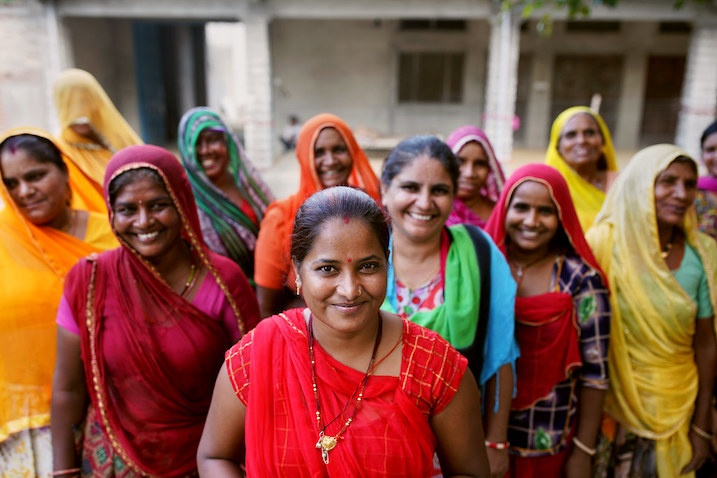 Goonj
Goonj
Goonj is an NGO with an ecosystem of donation and upcycling. Goonj Processing Centers are first point where all material collected from the cities goes through a rigorous process of sorting, segregating, repairing and packing before dispatching it to the remotest villages of India. The non-profit organisation also focuses on enhancing infrastructure especially in rural areas of India.
What you can donate: clothing, unused school material, footwear, paper and even furniture. However, whatever you donate, should be in a usable condition.
Pickup Service: They don’t have one in place, but you can look for the closest dropping centre around you. The Office in Mira Road is operational from Monday to Saturday 10AM to 5PM.

Khana Chahiye
Planning to feed the needy this Diwali? Then you can donate to Khaana Chahiye and sponsor a meal. Khaana Chahiye Foundation is an ‘Impact organization’ working towards SDG-2 ‘Zero Hunger’, in the Mumbai metropolitan region. It started off as a citizens’ movement that was founded on 29th March 2020 and has its origins in crowdfunded and volunteer-driven relief operations, through cooked meals and grocery kits, during the lockdown due to the covid pandemic.
Khaana Chahiye is now a registered not-for-profit company, working on data-driven, community-led and policy-oriented long-term solutions for urban hunger. The non-profit organization in Mumbai runs two community kitchens in Kurla and Ulhasnagar to feed the needy. The kitchens serve a total of 550 meals per day
How can you help – Donate for a meal or meals
Report hunger: If you know someone who needs immediate assistance in the Mumbai Metropolitan Region, contact this NGO.
Animal Matter To Me
If you wish to contribute something for our four legged buddies this Diwali, then you can make a donation at Animal Matter To Me (AMTM). With an office in Mumbai’s Malad, this is a non-profit animal welfare organisation dedicated to the rescue, care, and rehabilitation of injured, stray, and abandoned animals across India. This non-profit provides medical assistance, shelter, and lifelong support to animals that have no other means of survival. From neutering to vaccination drives and emergency rescue operations, the team is committed to ensuring the welfare and dignity of the voiceless.
How you can help- You can donate a bed for injured and Stray Animals, donate for cows, contribute for a large ambulance to rescue injured and needy animals, contribute for neutering, contribute for a second chance to hundreds of Injured and sick stray animals.
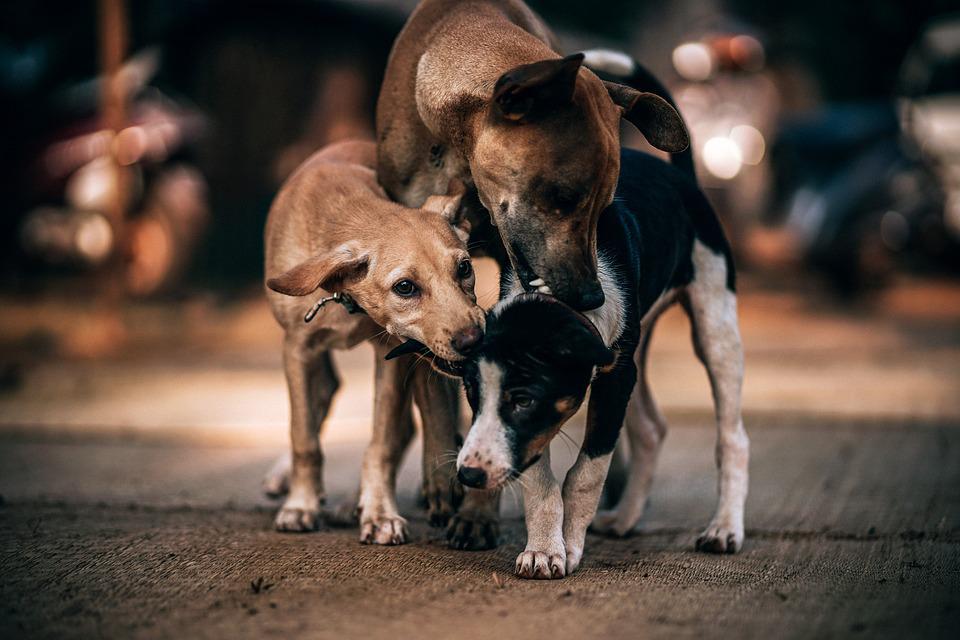
Share At Door Step
If you wish to avoid donating money then here is an option for you. You can donate reusable clothes, shoes, toys, stationery, furniture and electronics to trusted NGOs through ‘Share At Door Step’.
Share At Door Step helps you to donate clothes, books, and other household goods to those who need it and bring a smile on their faces. You can schedule a pickup and get the donations picked up from your doorstep from their official website. Please note that a convenience fee is charged for each pickup.

